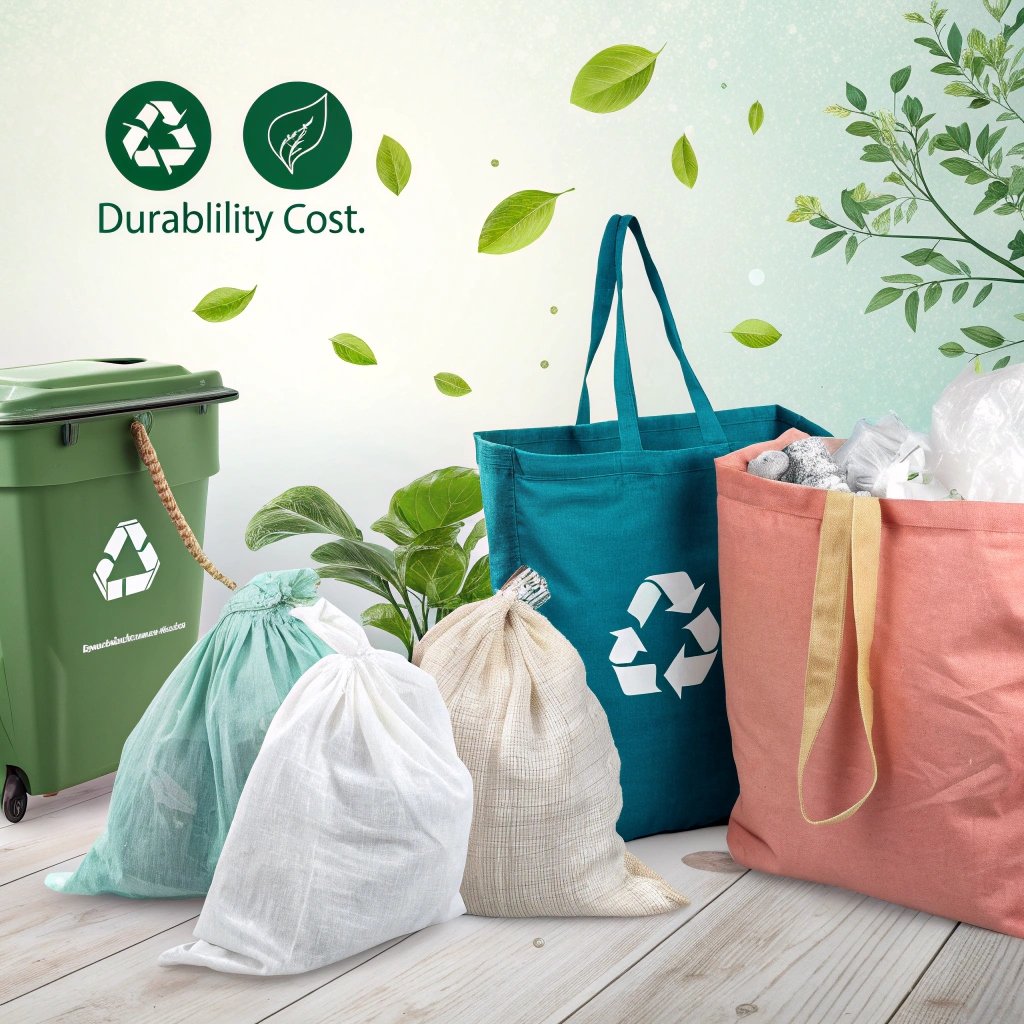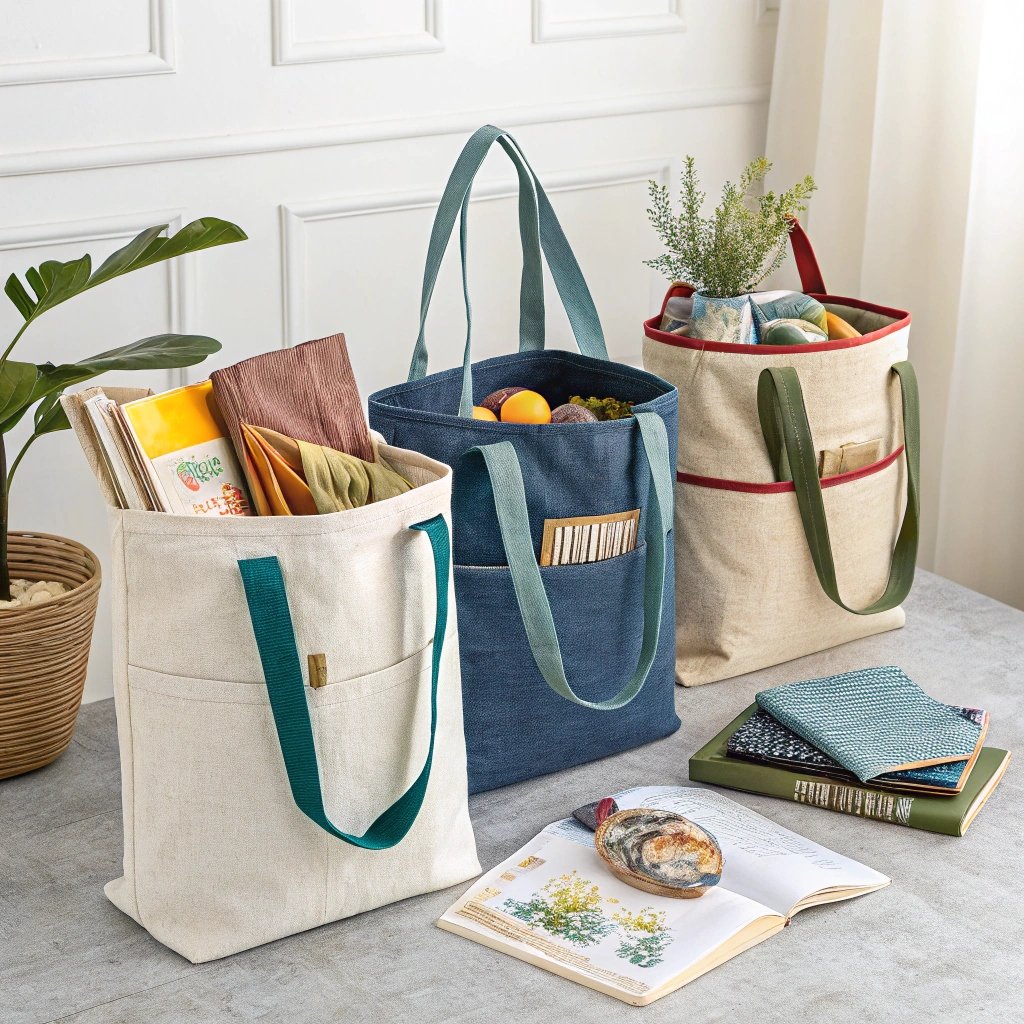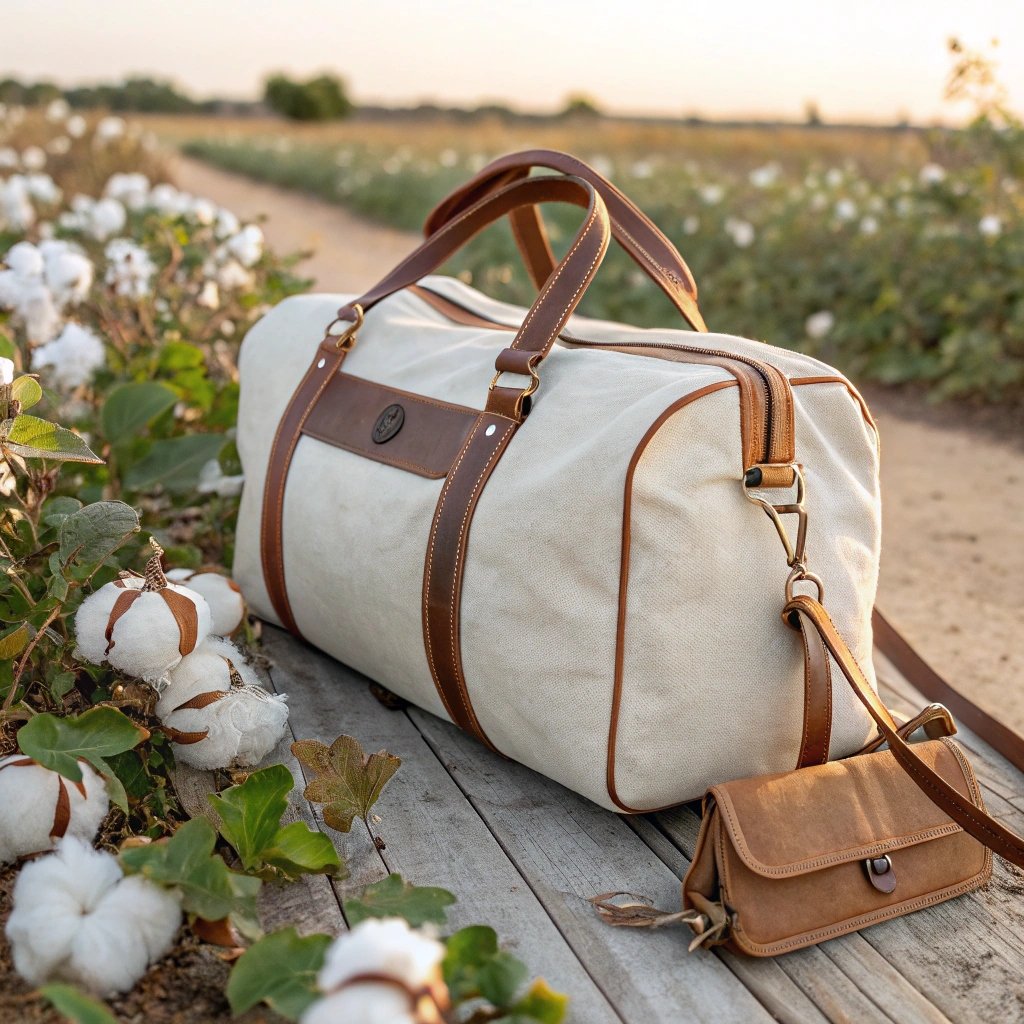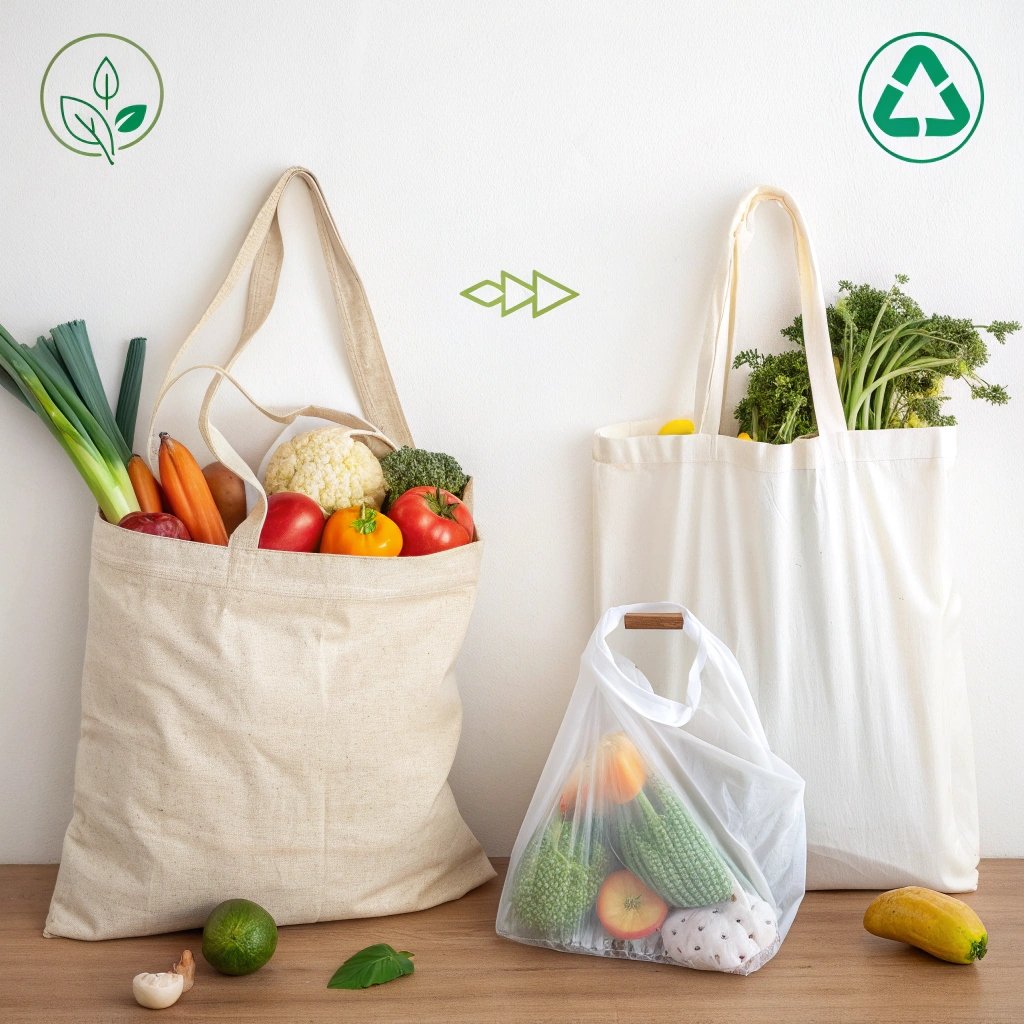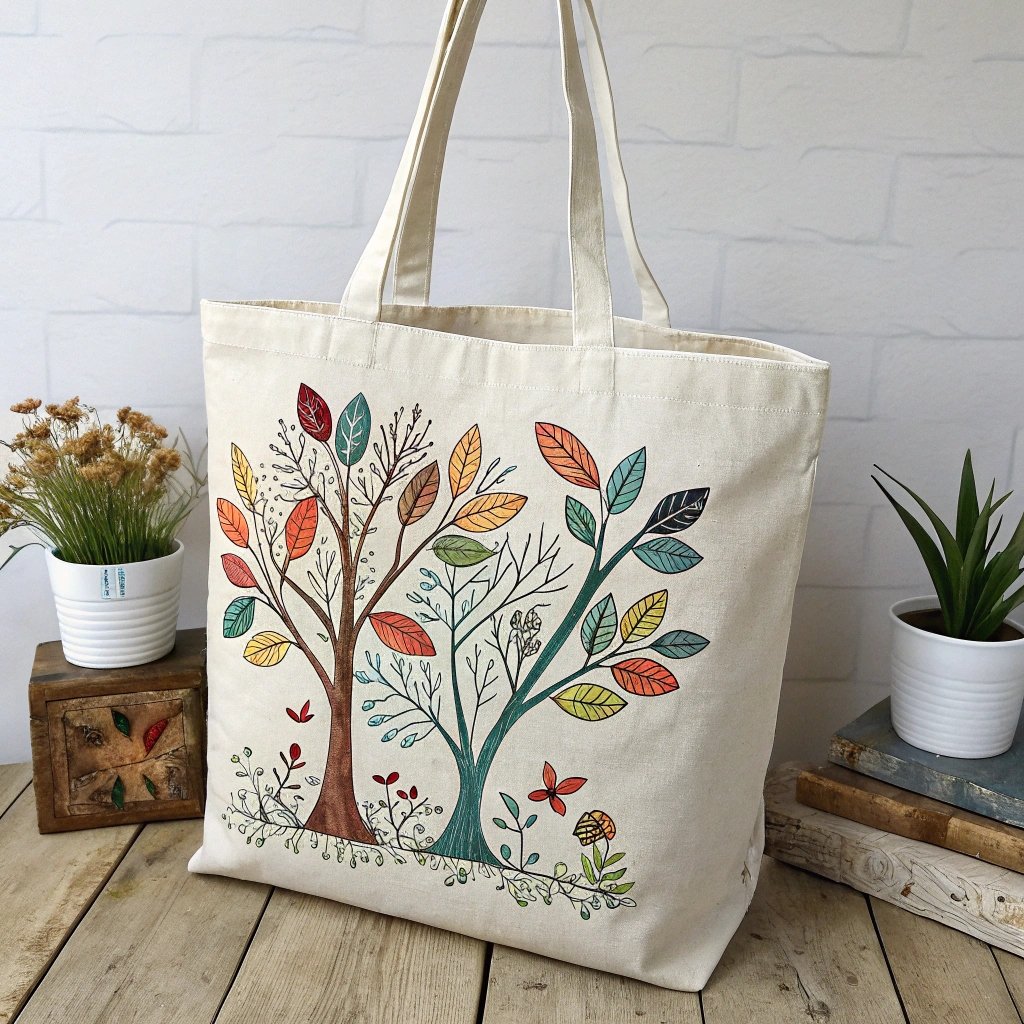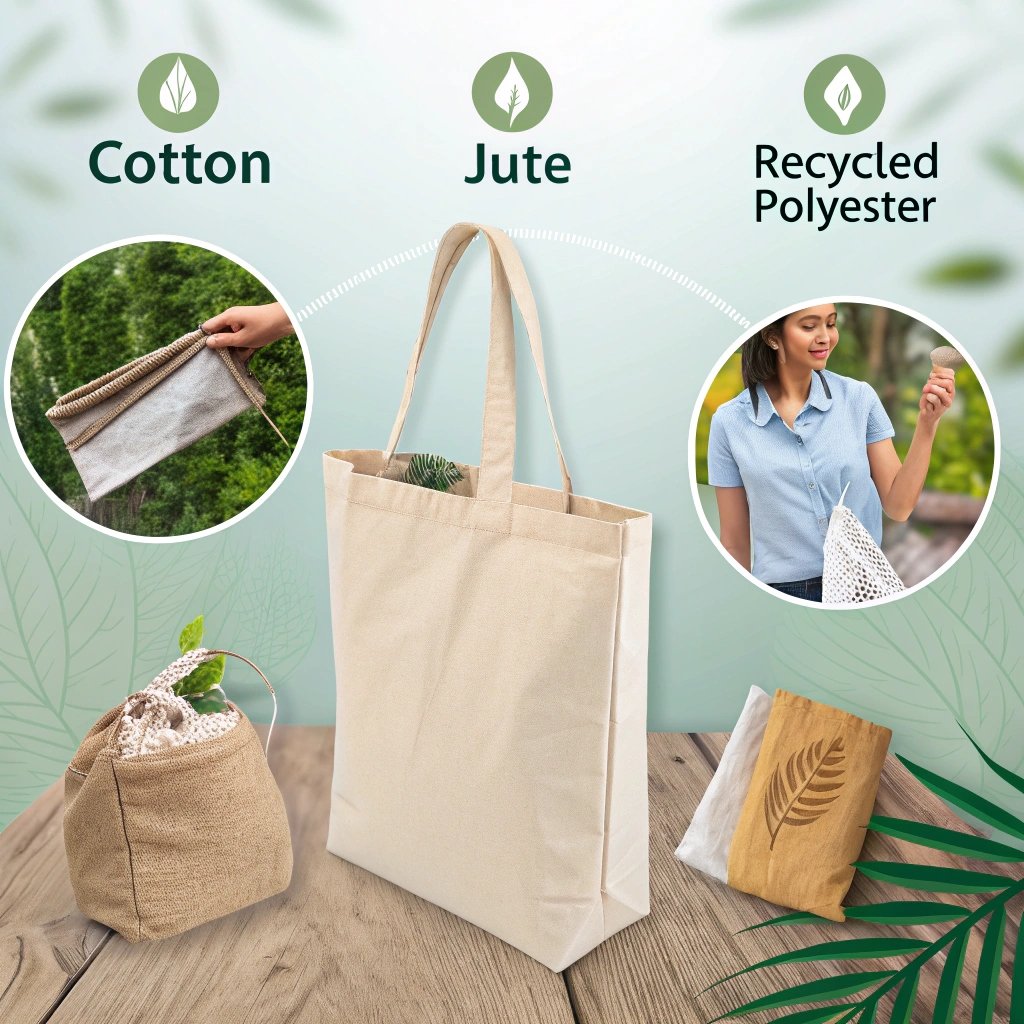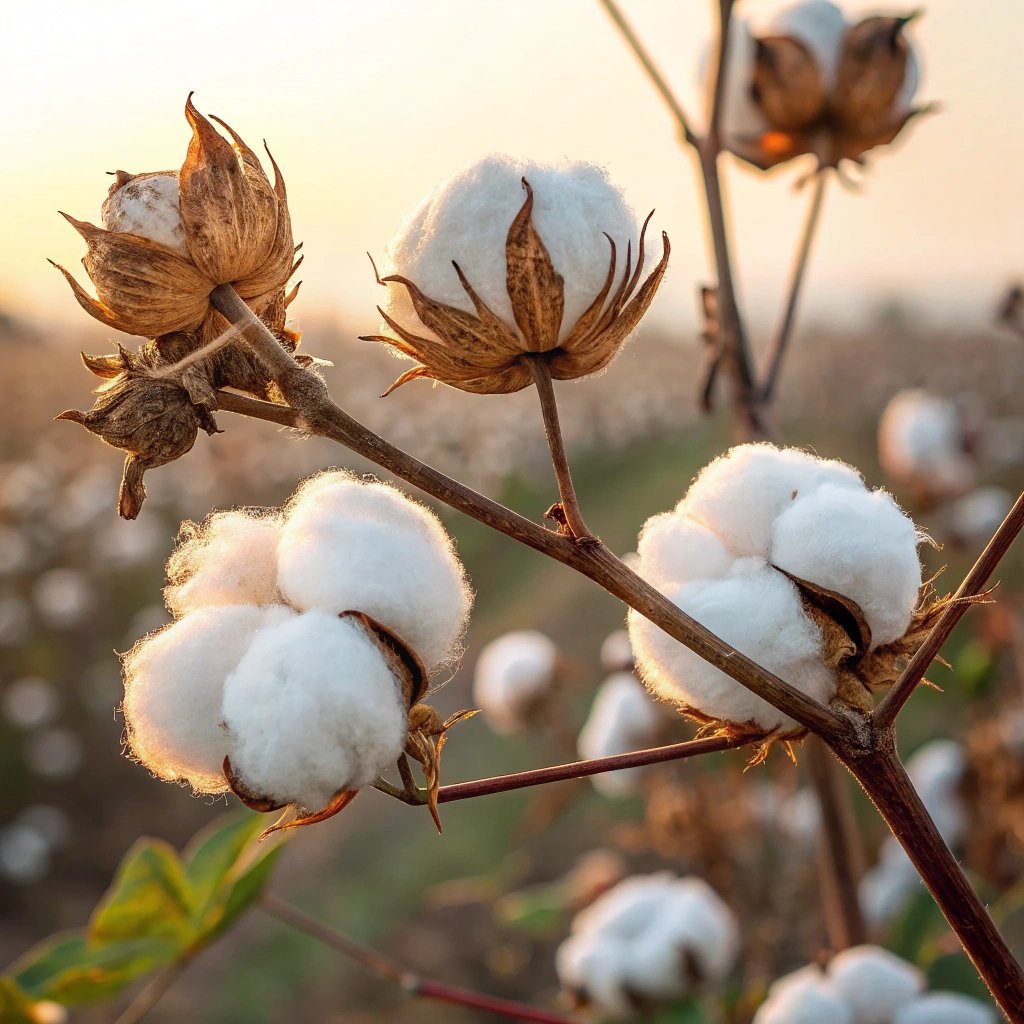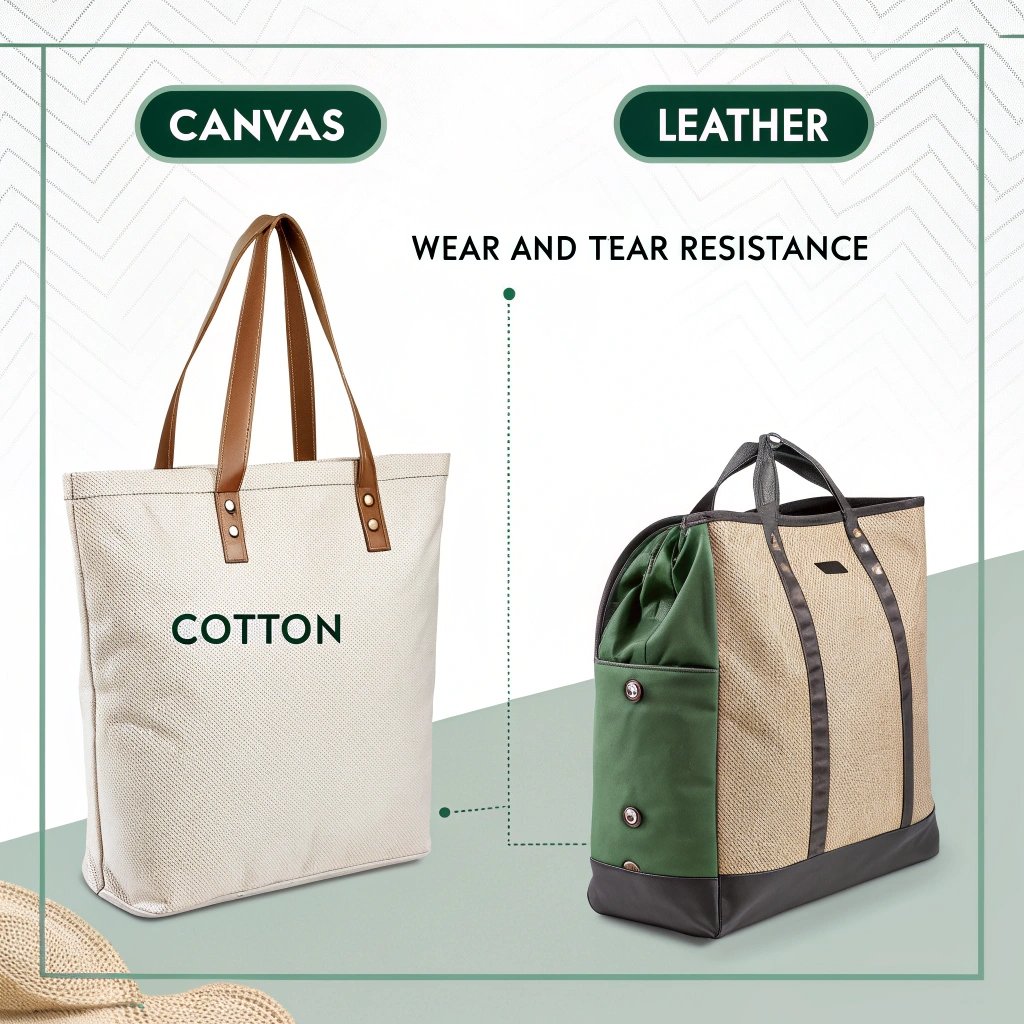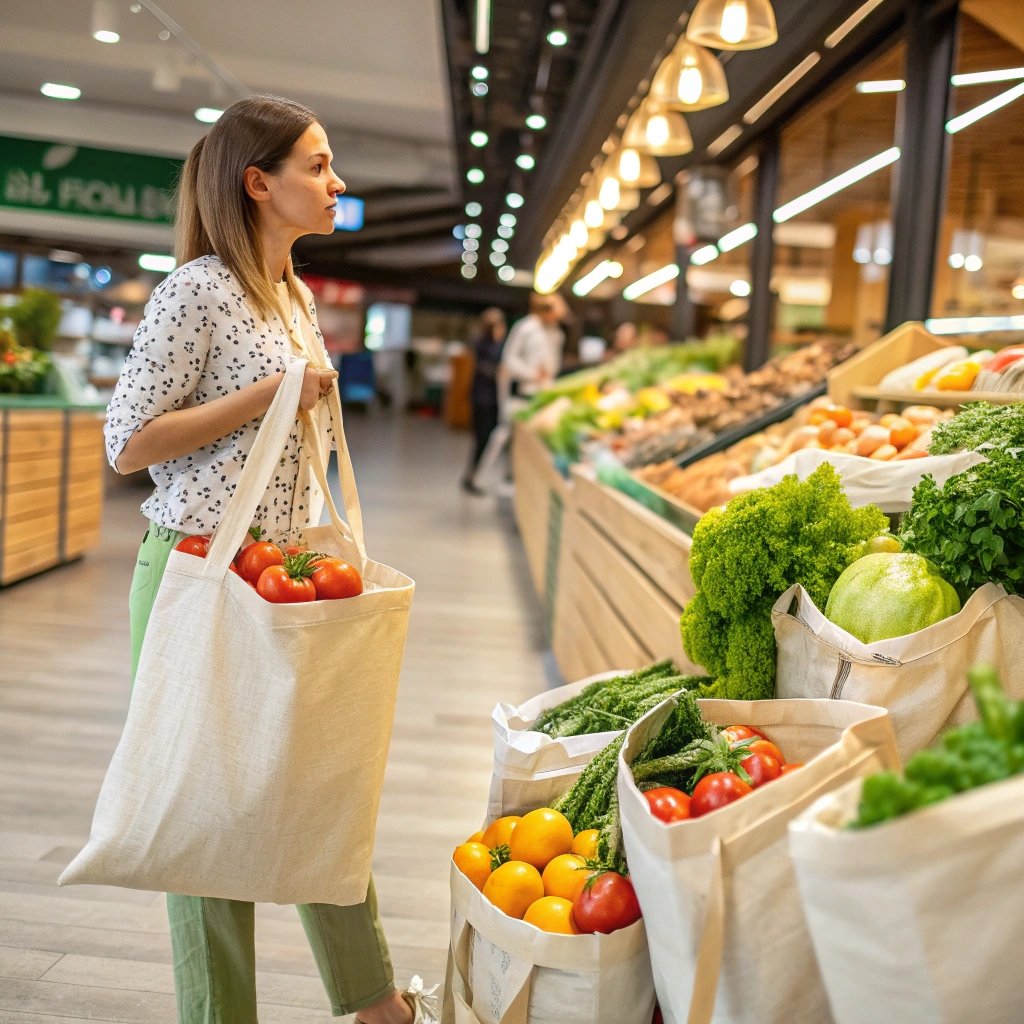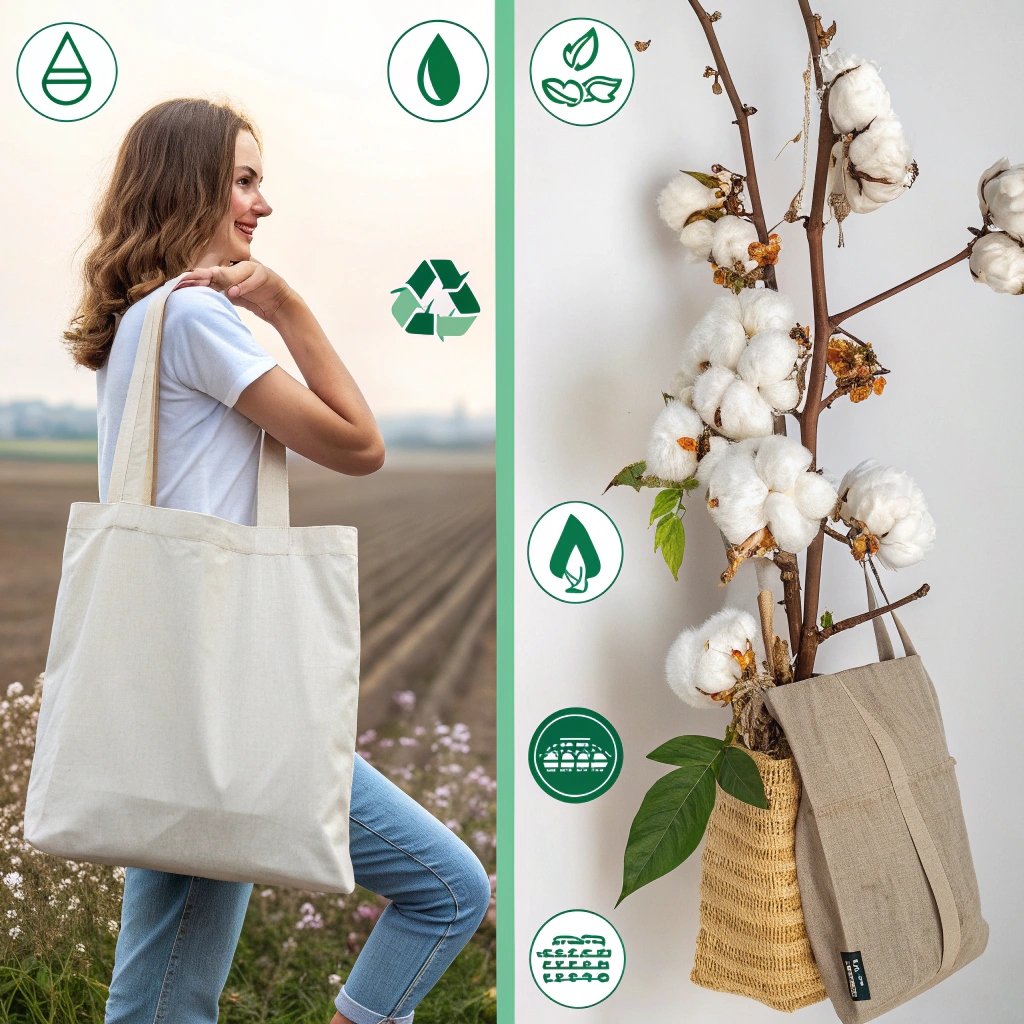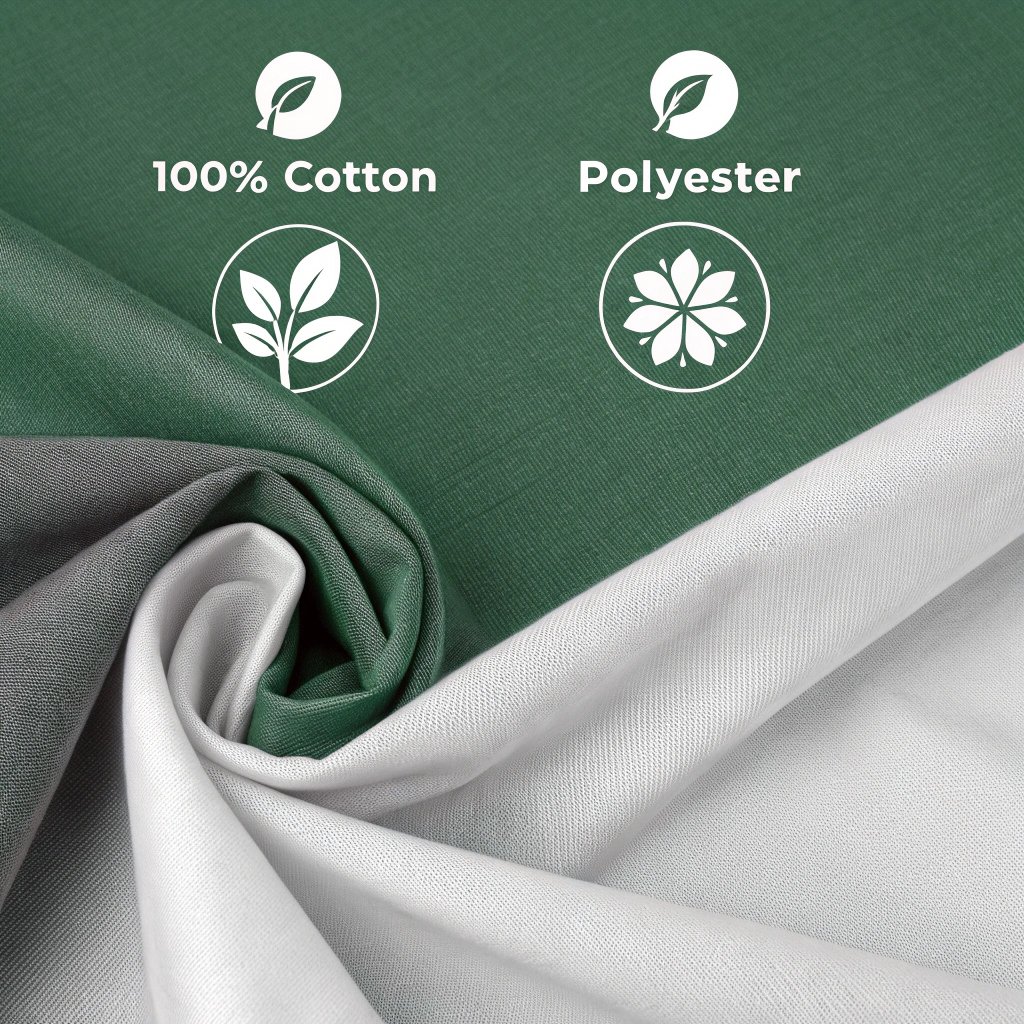As the world moves toward more sustainable options, cotton bags have become a preferred choice for eco-conscious shoppers. But is cotton the best material when compared to others like polyester or plastic? Let’s explore the advantages and disadvantages of cotton bags and determine whether they truly are the best alternative for reducing environmental impact.
Cotton bags offer a sustainable, reusable option that can reduce plastic waste, but there are factors to consider when choosing the right material for bags.
If you’re wondering whether cotton bags are the ultimate solution for eco-friendly shopping, keep reading to learn more.
What Are Cotton Bags Called?
Cotton bags are commonly referred to as "cotton tote bags1" or "canvas bags2." These bags are often used interchangeably, but there are slight differences between them. A "tote bag" is typically a simple, large bag with two handles, while "canvas" refers to the specific type of durable cotton fabric used in some bags. Cotton bags can be made from various weights of cotton or a blend of cotton and other materials.
Cotton bags are typically called cotton tote bags or canvas bags, designed for everyday use and various purposes like shopping and carrying goods.
Cotton tote bags are very popular because of their large, open design that’s easy to carry around. From minimalist designs to printed bags for promotional purposes, cotton bags can be adapted to any style and can hold a variety of items, making them perfect for both practical and aesthetic purposes.
Why Are Cotton Bags So Popular?
With the growing concern over plastic pollution, many people have turned to cotton bags as an eco-friendly alternative. Governments, stores, and individuals are all joining the movement to eliminate single-use plastic bags, and cotton bags are a common solution. They are reusable, biodegradable, and relatively easy to produce, making them an attractive alternative to plastic bags.
Is Cotton Good for Bags?
Yes, cotton is an excellent choice for bags. It’s naturally soft, strong, and breathable, which makes it a versatile material for everyday use. Cotton bags can be used for a variety of purposes, from carrying groceries to storing personal items. The fabric is lightweight, yet strong enough to hold heavy items without breaking.
Cotton is a strong, soft, and breathable material, making it perfect for bags that need to be durable and comfortable to carry.
Cotton’s breathable nature makes it especially ideal for carrying perishable goods like fruits and vegetables, as it prevents the buildup of moisture and odors. Additionally, cotton bags are often machine washable, which is a significant advantage for users who want a clean and reusable product.
How Cotton Bags Compare to Other Materials
While cotton bags are durable, they are not as indestructible as synthetic fabrics. Over time, cotton can wear out, especially if the bag is frequently exposed to the elements or heavy use. However, cotton bags are often more biodegradable and environmentally friendly compared to synthetic alternatives like nylon or polyester.
Is a Cotton Bag Better Than a Plastic Bag?
Cotton bags are certainly better than plastic bags in many ways. One of the main benefits of cotton bags is that they are reusable, which means you can use them for years instead of throwing them away after a single use, as with plastic bags. Cotton bags also decompose naturally when disposed of, unlike plastic bags that can take hundreds of years to break down and contribute to pollution in landfills and oceans.
Cotton bags are far better for the environment than plastic bags because they are reusable, biodegradable, and don’t contribute to plastic pollution.
However, it’s important to note that the production of cotton does have some environmental impact. Conventional cotton farming requires large amounts of water and may involve pesticide use, which can affect the environment. To combat this, consumers can choose organic cotton bags, which are grown without synthetic chemicals and with more sustainable farming practices.
Cotton vs. Plastic Bags: An Environmental Comparison
| Feature | Cotton Bags | Plastic Bags |
|---|---|---|
| Reusable | Yes | No |
| Biodegradable | Yes | No |
| Environmental Impact | Moderate (water-intensive farming) | High (non-degradable) |
| Durability | Moderate (if cared for) | Low (single-use) |
What Are Cotton Tote Bags Made Of?
Cotton tote bags are generally made from either 100% cotton or a cotton blend. The cotton used can be organic or conventional, and the fabric can vary in thickness. Some tote bags are made from canvas, which is a heavier cotton fabric. Canvas bags are sturdier and can carry heavier loads, making them a good choice for more durable bags.
Cotton tote bags are made from cotton fabric, which can be 100% cotton or a cotton blend, ensuring that they are sturdy and versatile.
Cotton tote bags can also come in various styles, such as simple, minimalistic designs, or they may feature artistic prints, logos, or messages. These bags are often used for promotional purposes by companies and are popular as giveaways at events.
The Benefits of Organic Cotton Tote Bags
For those seeking a more eco-friendly option, organic cotton tote bags are an excellent choice. Organic cotton is grown without synthetic fertilizers or pesticides, making it a better option for reducing environmental damage. While organic cotton bags may be slightly more expensive, they are a sustainable choice that aligns with eco-conscious values.
What is the Best Fabric for Shopping Bags?
When it comes to choosing the best fabric for shopping bags, cotton is an excellent choice, but it’s not the only option. Other fabrics like jute, recycled polyester, and nylon offer different benefits depending on your needs.
Jute, polyester, and cotton are all good choices for shopping bags, but each fabric has its advantages and drawbacks.
- Jute: Jute bags are an excellent option for environmentally-conscious shoppers. They are biodegradable and relatively durable, but jute can be rough and might not be as long-lasting as cotton for heavy-duty use.
- Polyester: Polyester bags are durable and resistant to wear and tear. They can hold heavier loads, but they are not biodegradable, making them a less eco-friendly choice.
- Recycled Polyester (RPET): Made from recycled plastic bottles, RPET bags offer a good balance between durability and sustainability, making them a great alternative to virgin polyester.
What Are Cotton Pods Called?
Cotton pods are known as "cotton bolls3." These are the fluffy, round capsules that grow on the cotton plant and hold the cotton fibers inside. After the cotton boll is harvested, the fibers are separated from the seeds and processed into yarn, which is then woven or knitted into fabric.
Cotton pods, or bolls, are the round, fibrous capsules that contain cotton fibers, which are processed into fabric for making bags.
The cotton fibers from the boll are what eventually become the fabric used for cotton bags. Once the cotton is harvested, it is spun into threads and woven into fabric, which can then be used to make everything from bags to clothing and textiles.
What Is the Most Durable Material for a Bag?
When it comes to durability, cotton is relatively strong, but other materials like canvas, leather, and nylon are often more resistant to wear and tear. Canvas is a thicker, more durable cotton fabric that’s used for heavy-duty bags like backpacks and large totes. Leather is also a highly durable material, but it requires more maintenance and care to keep it looking good.
For bags that need to endure heavy use, materials like canvas and leather are often more durable than standard cotton.
Leather, while durable and stylish, is also more expensive and requires proper maintenance to avoid cracking. Nylon is another option known for its durability, especially in wet conditions. It is lightweight, but it’s not biodegradable, making it less eco-friendly than cotton.
Comparing Durability of Bag Materials
| Material | Durability | Best For |
|---|---|---|
| Cotton | Moderate durability | Everyday use, light-duty bags |
| Canvas | High durability, long-lasting | Heavy-duty use, large bags |
| Leather | Very high durability, long-lasting | Luxury bags, long-term use |
| Nylon | High durability, resistant to wear | Travel bags, outdoor activities |
What Are Grocery Store Bags Made Of?
Most grocery store bags are made from plastic due to their low cost and lightweight properties. Plastic bags are convenient but contribute significantly to environmental pollution since they are not biodegradable. Many supermarkets are now offering alternatives, such as reusable cotton bags or bags made from recycled materials.
Most grocery store bags are made from plastic, but there is a growing shift toward sustainable alternatives like cotton and recycled plastic bags.
By using cotton bags, consumers can reduce the demand for plastic bags, which are often used only once before being discarded. Reusable cotton bags are durable, and many stores now offer incentives or discounts for customers who bring their own bags, helping to further reduce plastic consumption.
Is Polyester or Cotton Better for Tote Bags?
When choosing between polyester and cotton for tote bags, there are several factors to consider. Polyester is a synthetic material that is durable and water-resistant, making it a great choice for bags that will be exposed to the elements. However, polyester is made from petroleum-based resources and is not biodegradable, making it a less sustainable option.
Cotton is more eco-friendly than polyester, but polyester may offer superior durability for heavy-duty tote bags.
Cotton, on the other hand, is biodegradable, renewable, and much more eco-friendly. However, cotton bags may wear out more quickly compared to polyester, especially if used heavily or exposed to harsh conditions. Both fabrics have their advantages depending on the use case.
Is 100% Cotton Better Than Polyester?
100% cotton is often considered the more sustainable option because it is biodegradable, natural, and renewable. Polyester is a synthetic material made from petroleum, which is non-biodegradable and reliant on non-renewable resources. However, polyester tends to be more durable, resistant to water, and can withstand wear and tear better than cotton.
100% cotton is more sustainable than polyester, but polyester may offer better durability for heavy-duty uses.
Ultimately, choosing between cotton and polyester depends on your priorities. If you’re looking for an environmentally-friendly option, 100% cotton is the best choice. But if you need a bag that can endure rougher conditions or handle more weight, polyester may be the better material.
What Is the Best Lining for Handbags?
When selecting a lining for handbags, it’s important to choose a material that balances durability, comfort, and functionality. Cotton or cotton-blend linings are commonly used for handbags because they are soft, breathable, and easy to clean. Polyester linings are also popular because they are smooth and resistant to wrinkles.
The best lining for handbags offers a combination of durability and comfort. Cotton and polyester linings are commonly used for practicality.
Some luxury handbags feature satin or silk linings, which add a touch of elegance but may not be as durable. Waterproof linings are also available for bags that need to withstand the elements.
How Long Does a Polyester Bag Last?
Polyester bags are known for their long-lasting durability. With proper care, a polyester bag can last anywhere from 3 to 10 years, depending on its use and the quality of the material. Polyester is resistant to fading, water, and wear, making it an excellent choice for bags that undergo heavy use.
Polyester bags are durable and can last for several years with proper care, making them a good long-term investment.
While polyester is not biodegradable, its durability means it can be used repeatedly without showing signs of wear, which helps reduce the need for constant replacements.
Conclusion
Cotton bags are a sustainable alternative to plastic bags, but they aren’t perfect. Their environmental impact depends on factors like how the cotton is grown and processed. While polyester bags may offer better durability, cotton remains the most eco-friendly option for those who prioritize sustainability. Whether you choose cotton, polyester, or another material, the most important thing is to choose reusable bags that reduce waste and support long-term environmental goals.
-
Learn the difference between cotton tote bags and canvas bags and why both are popular choices for shopping. ↩
-
Understand what makes canvas a durable material for bags and how it differs from cotton. ↩
-
Discover the process of cotton harvesting and how cotton bolls are transformed into fabric for use in bags. ↩

